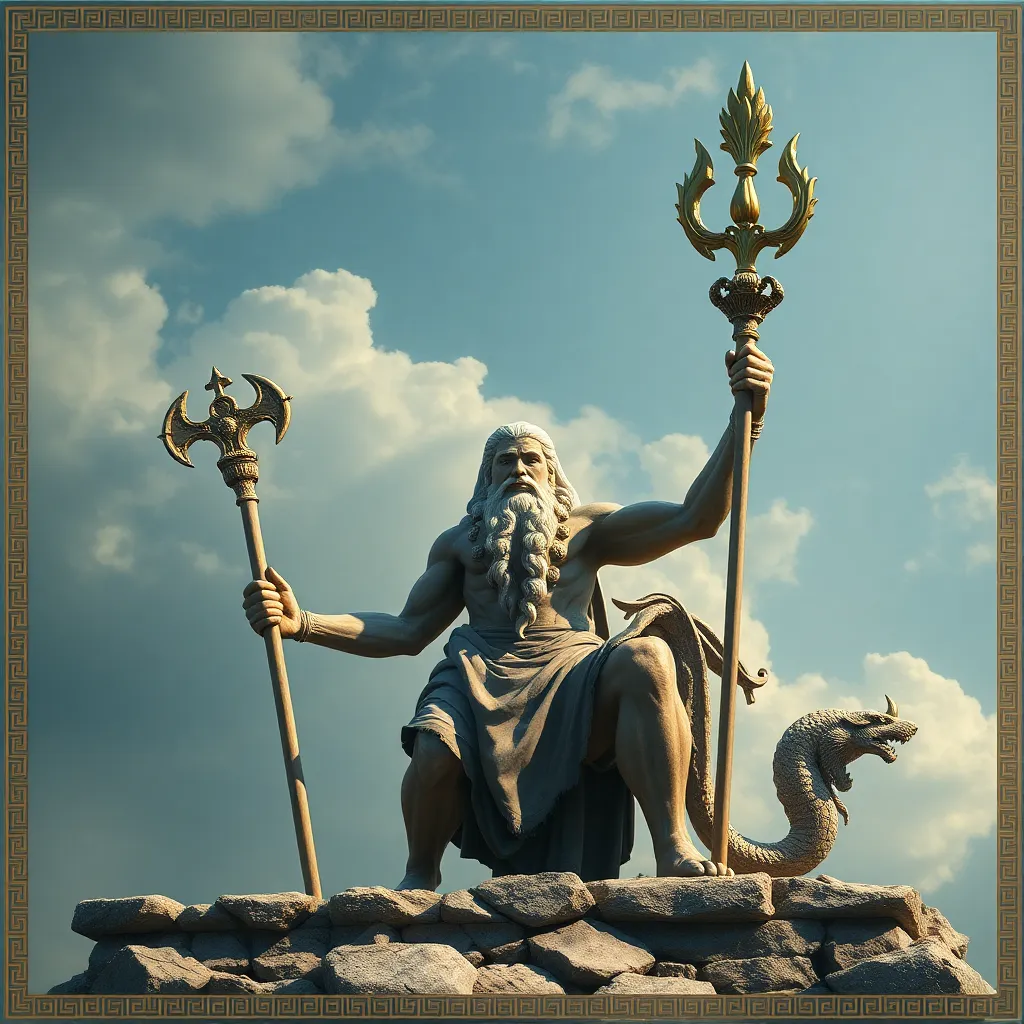The Titan Cronus: Father of the Olympians
I. Introduction
Cronus, one of the most significant figures in Greek mythology, is often remembered as the father of the Olympian gods. His story is one of power, betrayal, and the cyclical nature of time and authority. As a Titan, Cronus occupies a pivotal role in the mythological hierarchy that ultimately leads to the rise of the Olympians. This article will explore the origins of Cronus, his ascent to power, his downfall, and his lasting legacy in both mythology and culture.
II. Origins of Cronus
Cronus was born to Uranus (the sky) and Gaia (the earth), making him one of the primordial beings of the universe. As a member of the Titans, Cronus belonged to a race of deities that predated the Olympian gods. He was the youngest of the twelve Titans, and his lineage is significant in the context of Greek mythology.
- Birth and Lineage: Cronus was born into a powerful family, being the son of Uranus and Gaia, who were foundational figures in the creation myth of the Greek world.
- Role in Hierarchy: As a Titan, Cronus was part of the elder generation of gods, preceding the Olympians.
- Relationships: Cronus had complex relationships with his siblings, including Oceanus, Hyperion, and Rhea, which would shape his destiny.
III. Cronus’s Rise to Power
Cronus’s rise to power is marked by a dramatic act of rebellion against his father, Uranus. This act set the stage for his reign and the creation of a new era.
- The Overthrow of Uranus: Cronus castrated Uranus with a sickle given to him by Gaia, which allowed him to take control of the cosmos.
- The Golden Age: Following his victory, Cronus established a period known as the Golden Age, characterized by peace, prosperity, and a lack of conflict.
- Leader and Father Figure: Cronus was often depicted as a benevolent ruler, nurturing and protective of his children and subjects.
IV. The Prophecy and the Fear of Overthrow
Despite his initial success, Cronus was plagued by a prophecy that foretold he would be overthrown by one of his own children. This anxiety shaped his actions and ultimately led to his downfall.
- The Prophecy: A prophecy warned Cronus that one of his offspring would dethrone him, much like he had dethroned Uranus.
- Preventing His Downfall: In a desperate attempt to avoid this fate, Cronus swallowed each of his children as they were born.
- The Cyclical Nature of Power: This theme of power leading to fear and betrayal is common in mythology, illustrating that those who rise to power often fear losing it.
V. The Birth of the Olympians
Cronus married his sister Rhea, and together they had several children. However, to protect themselves from the prophecy, Cronus’s actions led to tragic consequences.
- Children of Cronus and Rhea: Their children included Hestia, Hera, Demeter, Poseidon, Hades, and Zeus.
- Names and Roles: Each of these children would become significant Olympian gods, each ruling over different aspects of the world.
- Symbolism: The birth of the Olympians symbolizes both the continuation of Cronus’s lineage and the seeds of his eventual destruction.
VI. The Downfall of Cronus
Cronus’s reign came to a dramatic end through a rebellion led by his youngest son, Zeus, who would become the king of the Olympians.
- The Rebellion: Zeus, hidden by Rhea, grew up to challenge Cronus and free his swallowed siblings.
- The Titanomachy: This epic battle between the Titans, led by Cronus, and the Olympians marked a turning point in Greek mythology.
- Consequences of Defeat: After losing, Cronus was imprisoned in Tartarus, along with many of the Titans, symbolizing the end of the old order.
VII. Legacy of Cronus
Despite his downfall, Cronus’s influence extends far beyond his immediate myth. His legacy can be seen in various aspects of culture and literature.
- Influence on Later Myths: Cronus’s story has inspired countless retellings and adaptations in literature, highlighting themes of power and betrayal.
- Cultural Interpretations: Artists and writers throughout history have depicted Cronus, often focusing on his dual nature as both a nurturing father and a tyrant.
- Lasting Impact: Cronus’s narrative has shaped Western notions of authority, power dynamics, and the consequences of fear-driven actions.
VIII. Conclusion
Cronus, as the father of the Olympians, plays a crucial role in Greek mythology. His life story encapsulates themes of power, prophecy, and legacy that resonate through time. From his rise to power and the establishment of the Golden Age to his eventual downfall and imprisonment, Cronus’s journey reflects the complexities of authority and the inevitable cycles of time. His influence continues to be felt in modern interpretations of mythology, reminding us of the timeless nature of these ancient stories.




